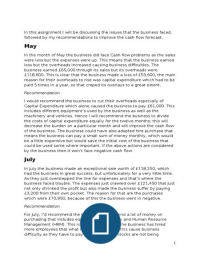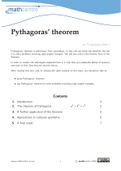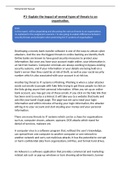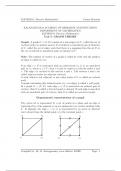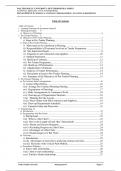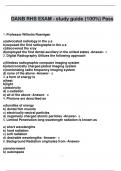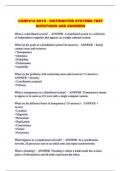Memory
Neural Plasticity
The brain is always changing (in both structure and function
Our Brain's ability to change (neuron growth, change in function)
The ability to recover from injuries and Learn
Missing Body Parts
Cortical representation (In S1 and more) changes when part of a body is lost
If a finger is removed, The neurons start getting input from the adjacent ones
Phantom Limbs
Cortical plasticity can result in Phantom Limbs
Sensation that an amputated or missing limb is still there
60-80% of individuals with an amputation experience this
Can be useful to adapt to prosthetic limb
In Phantom Limb phenomena, people often report feeling pain from the
missing limb
51% experience pain when arm amputated; 70% if amputated leg
Can range from mild (itching) to intense (cramping/ bending unnaturally)
Why PAIN (& not another sense) is unknown
Mirrors and Limbs
Looking at existing limb through a mirror makes it seem like the missing limb
Visual feedback stimulates proprioceptive maps in cortex & creates sensation
of movement of the phantom limb
can relieve pain
Memory 1
, Rubber Hand Illusion
Can transfer bodily awareness to inanimate objects
Look at the rubber hand & hide the real one
Give both same sensations → 66% of people feel as if the rubber hand
belongs to them
Tool Use
We have no issue “feeling” things through inanimate objects and toolds →
extending our body schema to animate objects
Driving car, Blind men w cane
→ Implant innovations
Experience-dependent Plasticity
Neurons adapt depending on persons activity and enviornment
Ex: Monkeys were trained to do a task involving the tip of the index finger
& the cortical representation of that finger GREW!
Musicians often have asymmetric representations of fingers
Ex: Fused finger representation of bow hand of violinists
By 12 months old, infants become specialists in the sounds of their native
language
They lose the ability to hear sound contrasts that don’t matter to them
Owl monkeys were trained to discriminate small differences in frequencies
(5000, or 8000Hz)
After training, there was an increase in cortical area that responded to this
frequency
Cat V1 have tunning curve
But if raised in an environment with only vertical or horizontal lines, then
the ability to see the other goes away
Memory 2
Neural Plasticity
The brain is always changing (in both structure and function
Our Brain's ability to change (neuron growth, change in function)
The ability to recover from injuries and Learn
Missing Body Parts
Cortical representation (In S1 and more) changes when part of a body is lost
If a finger is removed, The neurons start getting input from the adjacent ones
Phantom Limbs
Cortical plasticity can result in Phantom Limbs
Sensation that an amputated or missing limb is still there
60-80% of individuals with an amputation experience this
Can be useful to adapt to prosthetic limb
In Phantom Limb phenomena, people often report feeling pain from the
missing limb
51% experience pain when arm amputated; 70% if amputated leg
Can range from mild (itching) to intense (cramping/ bending unnaturally)
Why PAIN (& not another sense) is unknown
Mirrors and Limbs
Looking at existing limb through a mirror makes it seem like the missing limb
Visual feedback stimulates proprioceptive maps in cortex & creates sensation
of movement of the phantom limb
can relieve pain
Memory 1
, Rubber Hand Illusion
Can transfer bodily awareness to inanimate objects
Look at the rubber hand & hide the real one
Give both same sensations → 66% of people feel as if the rubber hand
belongs to them
Tool Use
We have no issue “feeling” things through inanimate objects and toolds →
extending our body schema to animate objects
Driving car, Blind men w cane
→ Implant innovations
Experience-dependent Plasticity
Neurons adapt depending on persons activity and enviornment
Ex: Monkeys were trained to do a task involving the tip of the index finger
& the cortical representation of that finger GREW!
Musicians often have asymmetric representations of fingers
Ex: Fused finger representation of bow hand of violinists
By 12 months old, infants become specialists in the sounds of their native
language
They lose the ability to hear sound contrasts that don’t matter to them
Owl monkeys were trained to discriminate small differences in frequencies
(5000, or 8000Hz)
After training, there was an increase in cortical area that responded to this
frequency
Cat V1 have tunning curve
But if raised in an environment with only vertical or horizontal lines, then
the ability to see the other goes away
Memory 2

